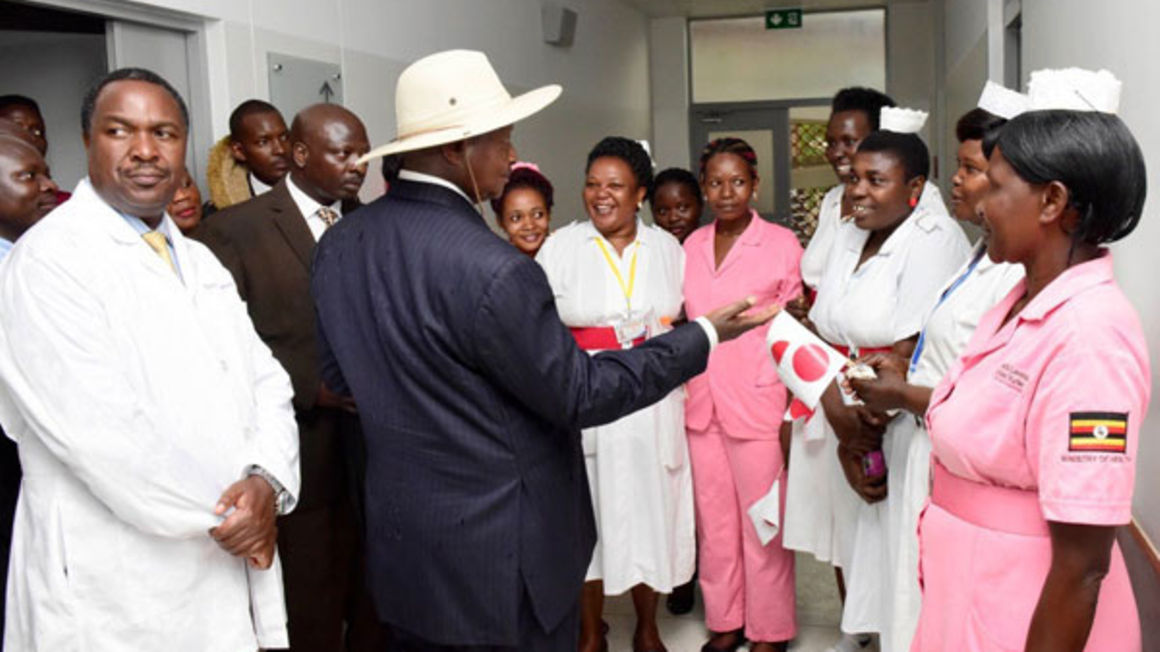Reserve the title of nurse for qualified staff

Attempts have been made to protect the job title ‘nurse’ in developed countries such as UK and US in order to avoid growing cases of some individuals who call them nurses whereas not.
A nurse is a person aged 18 years and above, who has undergone formal training from a recognised institution and is registered with Uganda Nurses and Midwives Council (UNMC) to practice nursing.
UNMC is a professional body whose primary mandate is to regulate nursing and midwifery practice in the country through registration and designation of tittles.
In 1997, the Uganda National Health Policy provided for the training of nursing aides under a three-month course in order to prepare them to get actively involved in the delivery of the minimum healthcare as the country was recovering from the impact of civil wars and HIV/Aids epidemic.
The aides were then recruited into the healthcare system under Health Sector Strategic Plan 2000/01 –2004/05 through the Poverty Action Fund. This followed numerous recruitments to bridge the human resource gap, which still exists because about 18 per cent of the existing nursing positions remain unfilled despite the growing population, according to the annual health sector performance report for 2019/2020.
In 2013, UNMC, while in Parliament to answer numerous queries raised in the Auditor General’s report for Financial Year 2011/2012, re-emphasised the need to scrap off nursing aides, affirming that the institution had registered enough qualified nurses.
Later in 2015, the nursing aide position was phased out of the profession and efforts are being done to equally transition all enrolled nurses by 2025 into registered ones as a minimum requirement for nurses as advised by stakeholders from East African Community.
This is to harmonise nursing training and practice in the region. However, the SPEED project report by Makerere University’s School of Public Health identified a number of shortcomings.
Despite the effort by government to streamline the profession, there is continued undermining of the trade by non-professionals calling themselves nurses, and employers appointing people into nursing roles without the necessary qualifications and registration.
UNMC has 15 recognised cadres of nurses and these do not include nursing assistants/aides (untrained health personnel that assist in care). The nursing cadres, whom high-end hospitals in Kampala have renamed auxillary nurses, continue to be trusted with patient care.
The Association of Graduate Nurses and Midwives of Uganda (AGNMU) calls for protection of the nursing title for sake of patient safety. Reports indicate that hundreds of nursing jobs across the country are being held by people who are not registered by the UNMC.
It is not the absence of qualified nurses but a lax in the policy and regulation. We believe, shortage of qualified nurses is no longer a major problem in the country —the common reasons are cheap labour at the expense of huge patient bills and quality of care — the consequences to patients can be catastrophic. So that is why we think it is an important patient safety issue.
A change in legislation would help to affirm the identity of the nurse and at the same time expose the work of support workers.
With better definition of registered nurse, nurse and healthcare support worker, I think it would be a lot easier to identify and articulate the contributions of those groups and to regulate healthcare support workers.
Dan Muramuzi; BScN, MSc Health Services Research scholar Association of Graduate Nurses and Midwives of Uganda.




